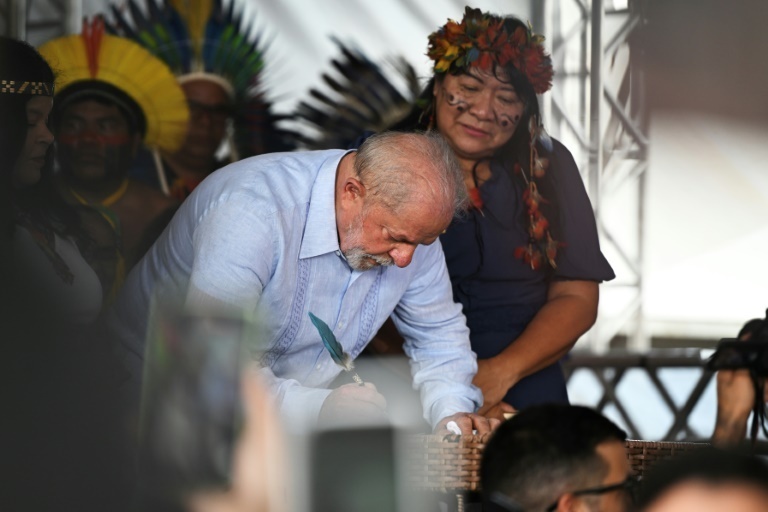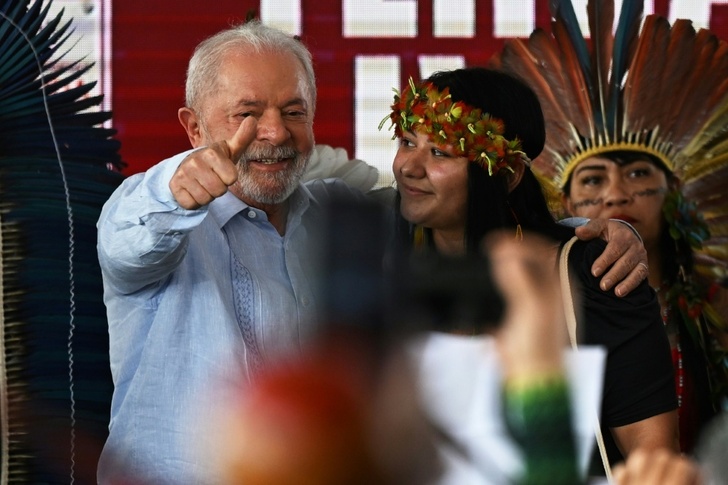Brazil's President Luiz Inacio Lula da Silva on Friday decreed six new Indigenous reserves, the first after a dearth of such expansion under his far-right predecessor Jair Bolsonaro.
Under the decree, Indigenous people are guaranteed exclusive use of natural resources on these lands, considered by scientists as a bulwark against Amazon deforestation -- a major challenge in the fight against global warming.
Lula signed the official decrees on the final day of a gathering of Indigenous people from around the country in the capital Brasilia.
"It is a time-consuming process, but we are going to make sure that as many Indigenous reserves as possible are legalized," the president said.
"If we want to achieve zero deforestation by 2030, we need registered Indigenous reserves."
Under four years of Bolsonaro, who had vowed to not cede "one more centimeter" of land to Brazil's Indigenous communities, average annual deforestation had increased by 75 percent compared to the previous decade.
Bolsonaro instigated policies that favored the agriculture and logging industries, which are mostly responsible for deforestation.
Two of the six new reserves are in the Amazon.
The largest, named Unieuxi, was allocated to 249 members of the Maku and Tukano peoples on more than 550,000 hectares in the northern state of Amazonas.
Two other reserves are in the country's northeast, one in the south, and one in central Brazil.
Friday’s announcement was made at a closing ceremony for the 19th edition of "Terra Livre" (Free Land), a gathering of thousands of Indigenous peoples from across the vast country.
According to the latest census, dating from 2010, Brazil is home to about 800,000 Indigenous people. Most of them live on reserves that take up 13.75 percent of the national territory.
- 'Fighting to recover' -
The last declaration of a new Indigenous reserve in Brazil dates to five years ago, when then-president Michel Temer granted the Guato people rights to 20,000 hectares of ancestral land in the western Mato Grosso state.
More are in the pipeline: Indigenous Minister Sonia Guajajara announced last month that 14 Indigenous reserves were ready to be legalized. These included the six announced Friday,

Indigenous people, he said last month, "do not occupy anyone's land, they are fighting to recover what they have been deprived of by invaders since 1500" when the first Portuguese colonizers arrived, he said.
Lula said the reserves "will help us take care of the climate. Otherwise humanity will disappear because of our irresponsibility."
He created a ministry of Indigenous Peoples, the first in Brazil's history.
lg/pt/mlr/dw
© Agence France-Presse
Your content is great. However, if any of the content contained herein violates any rights of yours, including those of copyright, please contact us immediately by e-mail at media[@]kissrpr.com.
Source: Story.KISSPR.com

